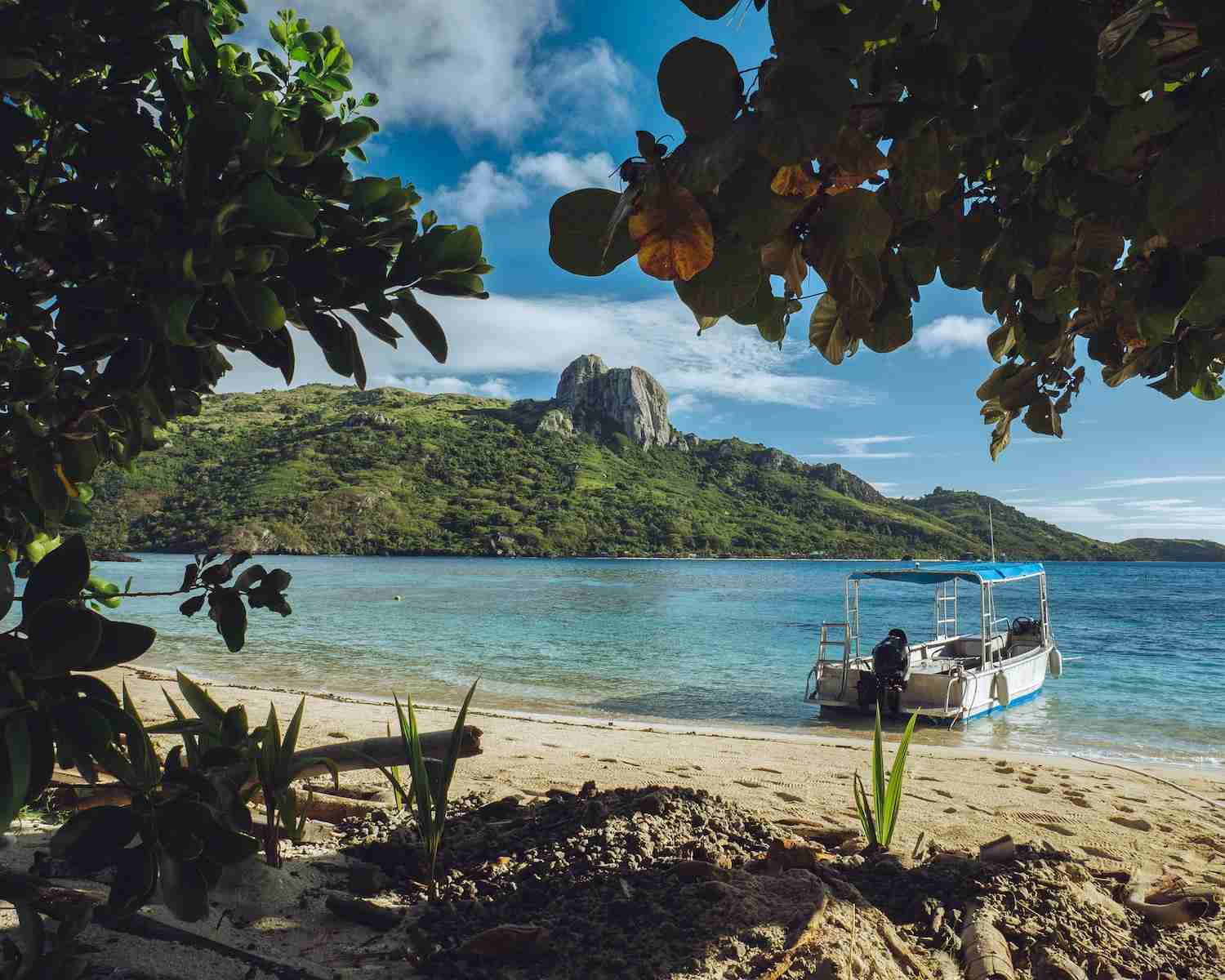26 Fun Facts About Fiji That Will Make You Pack Your Bags
1. Fiji is an island country located in the South Pacific Ocean.
Fiji is located in the South Pacific Ocean, about 1,100 nautical miles northeast of New Zealand. It is comprised of 333 islands, of which only 110 are inhabited. The two largest islands are Viti Levu and Vanua Levu.
Fiji has a total land area of around 18,000 square kilometers, making it slightly smaller than the state of Connecticut. The islands of Fiji are surrounded by clear blue waters and coral reefs, making it a popular destination for scuba diving and snorkeling.
Fiji is known for its tropical climate, with temperatures ranging from the mid-60s to mid-80s Fahrenheit.
2. Fiji consists of 333 islands, but only 110 are inhabited.
Of the 333 islands in Fiji, only 110 are inhabited, with a combined population of around 900,000 people. The largest island is Viti Levu, which is home to the capital city of Suva and the majority of the country’s population.
The second-largest island is Vanua Levu, which is also inhabited. Many of the smaller islands are privately owned and used as tourist destinations or for agriculture.
Some of the more remote islands are home to traditional Fijian villages and communities.
3. The capital city is Suva, which is located on the island of Viti Levu.
Suva is the capital and largest city of Fiji, located on the island of Viti Levu. It has a population of around 100,000 people and is home to the country’s government buildings, businesses, and cultural institutions.
Suva is known for its colonial architecture, bustling markets, and vibrant nightlife. It is also home to the Fiji Museum, which houses artifacts from Fiji’s history and culture.
Suva is located on the southeastern coast of Viti Levu and is a popular port for cruise ships.
4. Fijian culture is heavily influenced by Melanesian, Polynesian, and Indian cultures.
Fijian culture is a blend of many different influences, including Melanesian, Polynesian, and Indian cultures. The indigenous Fijian people have their own distinct culture, which includes traditional dance, music, and dress.
Many Fijians are also of Indian descent, and Indian culture has had a significant impact on Fiji’s cuisine and religious practices. Christianity is the most common religion in Fiji, although traditional Fijian beliefs and Hinduism are also practiced.
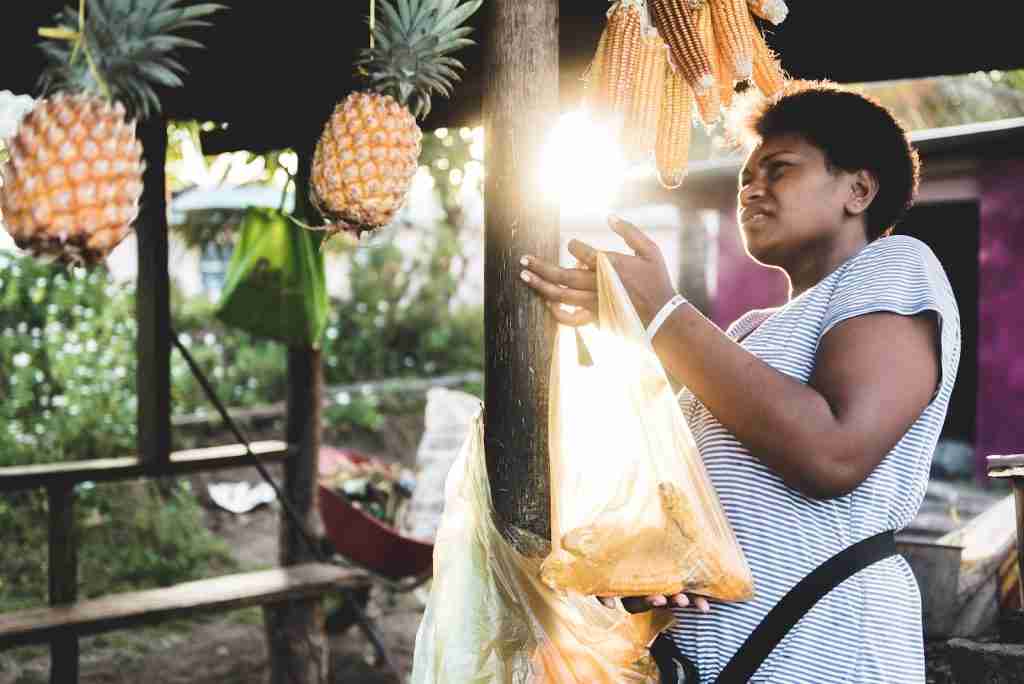
5. The official languages of Fiji are English, Fijian, and Hindi.
Fiji has three official languages: English, Fijian, and Hindi. English is widely spoken and is the language of business and government. Fijian is the native language of the indigenous Fijian people and is spoken by around half of the population.
Hindi is spoken by many Fijians of Indian descent and is the third most commonly spoken language in the country. Many Fijians are also bilingual, speaking both English and Fijian or Hindi.
6. Fiji is known for its beautiful beaches, crystal clear waters, and coral reefs.
Fiji is famous for its stunning natural beauty, including its white sand beaches, crystal clear waters, and vibrant coral reefs. Many of Fiji’s islands are surrounded by coral reefs, making it a popular destination for scuba diving and snorkeling.
Some of the most famous beaches in Fiji include Natadola Beach, Yasawa Island Beach, and Honeymoon Island. Fiji’s tropical climate and warm waters make it a popular destination for tourists looking to relax and enjoy the sun.
7. The traditional Fijian drink is called kava, made from the root of a pepper plant.
Kava is a traditional Fijian drink made from the root of a pepper plant called Piper methysticum. The root is ground into a powder and mixed with water to create a muddy, earthy-tasting beverage. Kava has a mild sedative effect and is often used in traditional Fijian ceremonies and social gatherings.
It is also believed to have medicinal properties and is sometimes used to treat anxiety, stress, and insomnia. Kava bars, where people can go to drink kava and socialize, are popular in Fiji and other Pacific Island countries.
8. Fiji is home to many species of exotic birds and wildlife.
Fiji is home to a wide variety of exotic birds and wildlife, many of which are found nowhere else in the world. Some of the most famous species include the Fiji banded iguana, the crested iguana, and the Fiji petrel.
The Fiji crested iguana, in particular, is a critically endangered species that is found only in the forests of Fiji’s largest island, Viti Levu. Fiji is also home to a number of marine species, including dolphins, whales, and sharks.
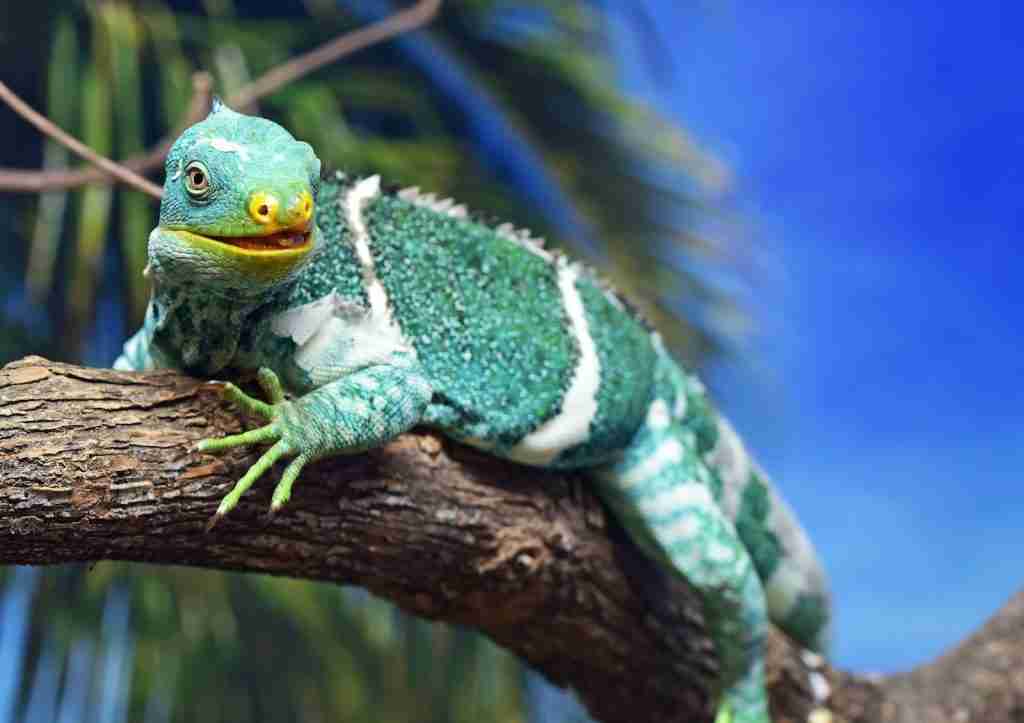
9. Rugby is the national sport of Fiji.
Rugby is the national sport of Fiji and is a major part of the country’s culture. The Fiji national rugby union team, nicknamed the Flying Fijians, is one of the strongest rugby teams in the world and has a passionate fan base.
Rugby is played at all levels in Fiji, from schoolyard games to professional leagues. The sport is believed to have been introduced to Fiji by British soldiers in the late 1800s and has since become an integral part of the country’s identity.
10. The Fijian dollar is the official currency of Fiji.
The Fijian dollar is the official currency of Fiji and is divided into 100 cents. The currency is used for all transactions within the country and can be exchanged at banks and currency exchange offices.
The Fijian dollar is a relatively stable currency and is accepted at most major tourist destinations in the country. Other currencies, such as US dollars and Australian dollars, are also accepted in some places.
11. Fiji has a rich history of traditional crafts and art.
Fiji has a rich history of traditional crafts and art, including pottery, weaving, and woodcarving. Many of these traditional crafts are still practiced today and can be found at local markets and shops throughout the country.
One of the most famous Fijian crafts is the masi, or bark cloth, which is made from the inner bark of the paper mulberry tree. Masi is used to make clothing, decorations, and ceremonial items.
12. The Fijian diet is rich in seafood and tropical fruits.
The Fijian diet is heavily influenced by the country’s location in the South Pacific and is rich in seafood and tropical fruits. Some of the most commonly consumed seafood in Fiji include fish, crab, and shrimp.
Tropical fruits such as papaya, mango, and coconut are also staples of the Fijian diet. Many Fijian dishes are flavored with herbs and spices such as turmeric, ginger, and chili peppers.
13. Fiji has a strong tradition of storytelling and oral history.
Fiji has a strong tradition of storytelling and oral history, with tales passed down through generations of Fijian families. These stories often involve mythical creatures and legends of heroic deeds.
Many Fijian dances and ceremonies are also tied to traditional stories and are used to pass on cultural knowledge and values.
14. The Great Astrolabe Reef is one of the largest coral reefs in the world.
The Great Astrolabe Reef is located off the southern coast of Fiji’s second-largest island, Kadavu, and is one of the largest coral reefs in the world. The reef spans over 100 kilometers and is home to a diverse range of marine life, including more than 1,000 species of fish, 12 species of whales and dolphins, and a variety of sharks and rays.
The Great Astrolabe Reef is also known for its beautiful coral formations, including giant coral gardens, underwater cliffs, and canyons. The reef is a popular destination for divers and snorkelers from all over the world.
15. Fiji is known for its luxurious resorts and spas.
Fiji is known for its many luxurious resorts and spas, which offer visitors a chance to relax and unwind in beautiful surroundings.
Many of the resorts are located on private islands and offer exclusive access to pristine beaches, crystal-clear waters, and top-notch amenities such as infinity pools, world-class restaurants, and spa treatments.
The Fijian hospitality and warmth of the locals also make the resort experience even more enjoyable.
16. Fiji is a popular destination for weddings and honeymoons.
Fiji is a popular destination for weddings and honeymoons, thanks to its stunning natural beauty, warm climate, and romantic atmosphere.
Many resorts offer wedding packages that include everything from the ceremony and reception to accommodations and honeymoon activities. Couples can choose from a range of settings, from private beaches to lush tropical gardens, to exchange their vows.
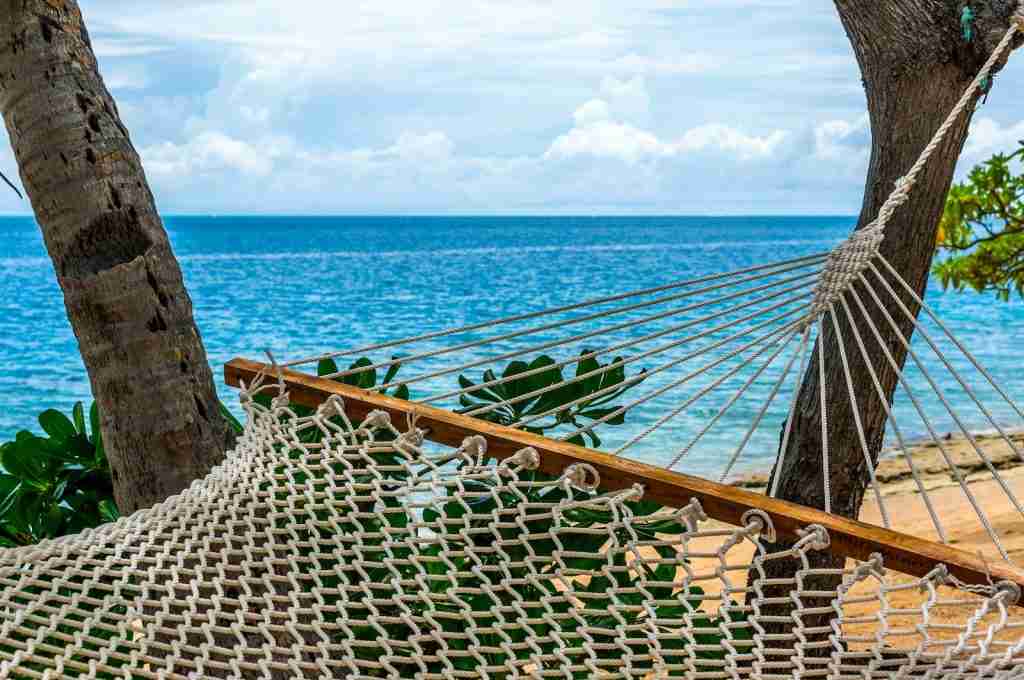
17. Fiji is home to the world’s only known firewalking culture.
Fiji is home to the only known firewalking culture in the world, known as the Sawau tribe. Firewalking is a traditional Fijian ceremony that involves walking barefoot over hot stones that have been heated in a fire.
The ceremony is believed to have originated as a way of demonstrating bravery and spiritual devotion. Visitors to Fiji can witness firewalking ceremonies at various locations throughout the country, including some resorts.
18. Fijians practice traditional forms of medicine alongside modern Western medicine.
Fijians practice traditional forms of medicine alongside modern Western medicine. Traditional medicine in Fiji includes the use of herbal remedies, massage, and spiritual healing.
These traditional practices are often used in conjunction with modern medicine to provide a more holistic approach to healthcare. Many Fijians also believe in the power of traditional medicine to treat a range of ailments and illnesses.
19. An interesting fact about Fihi’s culture is that Fiji has a strong tradition of meke, or dance.
Fiji has a strong tradition of meke, which is a form of dance that incorporates music, singing, and storytelling. Meke is often performed at traditional Fijian culture ceremonies and events, such as weddings, funerals, and religious celebrations.
The dance is a way of preserving Fiji’s culture and passing down cultural knowledge from one generation to the next. Meke dances often involve intricate footwork and movements that are synchronized with the music.
20. The Fijian language has unique features that distinguish it from other Pacific Island languages.
The Fijian language has unique features that distinguish it from other Pacific Island languages. It is an Austronesian language and has a complex system of vowel sounds, with both long and short vowels.
Fijian also has a system of stress that is used to distinguish between words that have the same spelling. The language is written using a modified version of the Latin alphabet, and many Fijians also speak English.
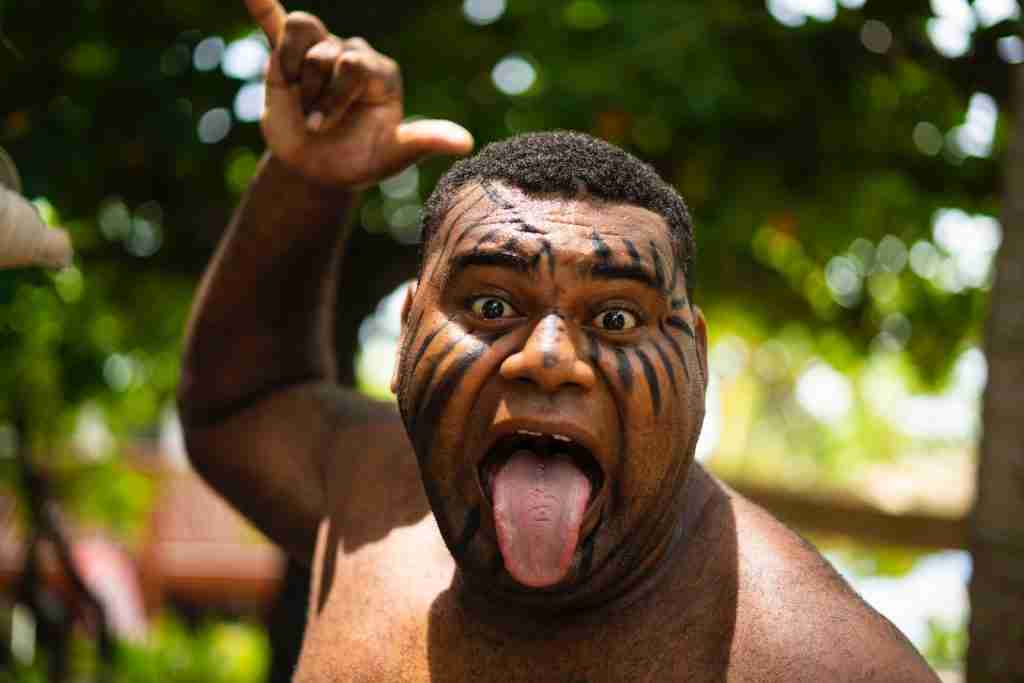
21. Fiji is home to the world’s largest sleeping giant.
Fiji is home to the world’s largest sleeping giant, which is a mountain range located on the main island of Viti Levu. The range is named after its resemblance to a sleeping giant, with its ridges and peaks resembling the profile of a sleeping figure.
The range stretches for more than 40 kilometers and includes several peaks that are over 1,000 meters high. The sleeping giant is a popular hiking destination, with many trails leading to its various peaks and viewpoints.
22. Fiji is home to several species of endangered animals.
Fiji is home to several species of endangered animals, including the Fijian crested iguana, the Fijian ground frog, and the Fijian monkey-faced bat. These animals are threatened by habitat loss, hunting, and other factors, and their populations are declining.
The Fijian government and conservation groups are working to protect these species through habitat restoration, captive breeding programs, and public education campaigns.
23. Fiji is a popular filming location for Hollywood movies.
Fiji is a popular filming location for Hollywood movies, thanks to its beautiful scenery and favorable filming conditions. Some of the movies that have been filmed in Fiji include “Cast Away,” “The Blue Lagoon,” and “Return to the Blue Lagoon.”
The Fijian government actively promotes the country as a filming destination and offers incentives for filmmakers, such as tax breaks and assistance with location scouting and permits.
24. Fiji has a unique system of social organization called the vanua.
Fiji has a unique system of social organization called the vanua, which is based on the concept of kinship and land ownership. The vanua is a collective entity that includes a group of people who are related by blood or marriage and who share a common territory.
Each vanua is headed by a chief, who is responsible for maintaining social order and resolving disputes within the community. The vanua system is an important part of Fijian culture and is still widely practiced today.
25. The Fijian flag features the Union Jack and the Fijian coat of arms.
The Fijian flag features the Union Jack in the upper left corner, which represents Fiji’s historical ties to Britain, and the Fijian coat of arms on the right side.
The coat of arms features a shield with a Fijian warrior holding a spear and a traditional Fijian canoe, as well as a motto that reads “Fear God and honor the Queen.”
The blue background of the flag represents the Pacific Ocean, while the white and red stripes represent purity and courage, respectively.
26. Fiji has a tropical climate with two distinct seasons.
Fiji has a tropical climate with two distinct seasons: a wet season from November to April and a dry season from May to October.
The wet season is characterized by heavy rain, high humidity, and the risk of cyclones, while the dry season is cooler and drier, with lower humidity and fewer storms.
The average temperature in Fiji is around 27°C, making it a popular destination for sun-seekers and beach-goers.

